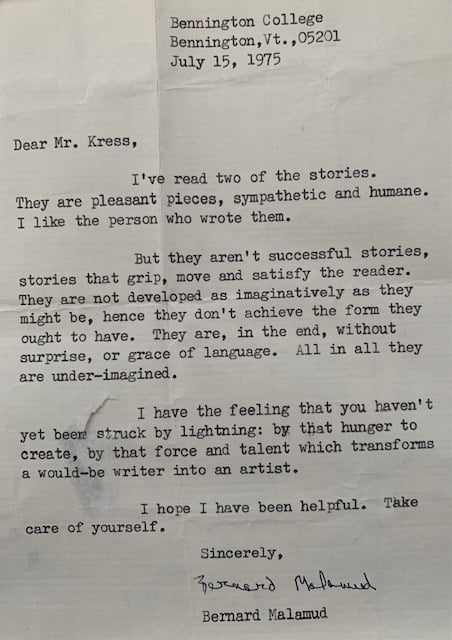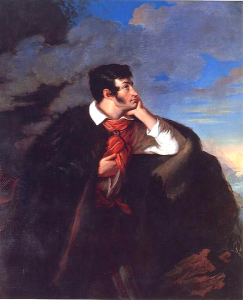
Tomas in Vilnius
I met Tomas Venclova in his role as a poet, and it is primarily as a poet he is known. However, he has a lesser-known role as a champion of Lithuanian culture, literature, and above all language. His work in that arena is as impressive as his poetry – and he had a chance to show it at the European Union yesterday and today, in Brussels and Luxembourg, where he was speaking. I asked him if I could share some of his remarks, which he had sent to me. “Mais oui!” he replied.
I’ve blogged so much about Vilnius and Lithuania – try here and here and here and here and here. But it’s a wonderful country and during my most recent visit, traveling from Warsaw to Vilnius, I gained a deeper appreciation of its wildness and mystery, of its old superstitions and myths, and the enchantment of its jewel-box capital, aptly symbolized, on its coat of arms, by Saint Christopher wading through the mud of history.
The Lithuanian language has has kept many archaic features of ancient languages such as Sanskrit or Ancient Greek, and is spoken by about 3.2 million people. Yet, as Tomas pointed out, it’s in better shape today than Gaelic – “now, it is not just the official state language, but also the language of schools, universities, press and other media, as well as of very good theaters. Even before World War I, Lithuanian literature in Vilnius had built quite a reputation, though during the two interwar decades, when the city was annexed to Poland, it was often dismissed as inferior.”
Marvelous Vilnius, a Jerusalem claimed by two nations, the Lithuanians and the Poles, is “the perfect and sacred city which had been lost in the whirlwinds of history,” he said. The city, which at times almost a religious space, “is often said to be mysterious and magic, eccentric and peculiar, the inspiration of myths and poetry. A particularly strong connection between the city and its surroundings is also very characteristic to it, allowing poets to see Vilnius as a pastoral place with ‘wild’ but idyllic nature intruding into the city center and adorning its baroque décor. … The text of Vilnius is composed of smaller texts, written in different languages, sometimes rich in code-switching, as for instance the seventeenth-century dramas, where Lithuanian and Belarussian cues are interwoven with Polish ones.
“But there is more than just linguistics involved here. Most varied cultural discourses overlay one another, letting competing myths sprout from the primeval mythological trunk. The national identity of many residents of Vilnius is similarly complicated: the same person can simultaneously belong to several cultures, which is why she or he sometimes stands aloof from the rest of society, suffering from an inner conflict.”
Two of the Polish language’s greatest poets were born and reared in Lithuania: Czesław Miłosz in the 20th century and Adam Mickiewicz in the 19th – and Miłosz was a close friend of the Lithuanian-language poet. Venclova’s talk wasn’t short on his friend:
 “Czesław Miłosz, the greatest Vilnius poet of the twentieth century, also started his career in the interwar period … The life of Vilnius-Wilno (at that time, annexed to Poland) did not change much from Mickiewicz’s to Miłosz’s times; the city and its suburbs were populated by the same provincial Polish gentry, known as szlachta, the memories of the free masons’ lodges were still alive, and the great University, closed by Tsarist Russia in 1832, was reopened in 1918. Thus, the budding poet could readily feel he was entering a larger tradition. But for Miłosz, Vilnius was not a sanctuary to visit on a pilgrimage; nor was it a place asking for a particular literary genre to record its magnificence, namely, the poetic Baedeker, much exploited by the lesser poets of the time. Miłosz was not a regional but a European poet, as was Mickiewicz. According to him, the Mickiewicz tradition marked a revolt, a disagreement with reality as well as the prospect of exile. But for him, too, Vilnius-Wilno was a sacred city. Finding himself in exile in 1950s, he denied feeling nostalgic: he wanted to start anew and to build his poetic tower without looking back. Yet his texts soon acquired a double perspective: he would depict the city of his youth through the prism of his new French and American experiences, reviving the details of the past life with heartfelt love and skill, and contrapuntally comparing Vilnius to his new surroundings. He recreated the city spaces in the Proustian manner: his city is idealized because of his physical and temporal distance, but the picture is realistic enough and devoid of unnecessary sentimentality. In the cycle Miasto bez imienia (City without a Name) published in 1969, as well as in other poems, Milosz was approaching what he himself called apocatastasis, the revival of purified, primordial reality. He was greatly, probably mainly, interested in the language of that reality. In this, an obvious example and archetype for Milosz was Mickiewicz, but also the Lithuanian Konstantinas Sirvydas, the author of the seventeenth-century dictionary, to whom Miłosz devoted his beautiful poem ‘Philology.’
“Czesław Miłosz, the greatest Vilnius poet of the twentieth century, also started his career in the interwar period … The life of Vilnius-Wilno (at that time, annexed to Poland) did not change much from Mickiewicz’s to Miłosz’s times; the city and its suburbs were populated by the same provincial Polish gentry, known as szlachta, the memories of the free masons’ lodges were still alive, and the great University, closed by Tsarist Russia in 1832, was reopened in 1918. Thus, the budding poet could readily feel he was entering a larger tradition. But for Miłosz, Vilnius was not a sanctuary to visit on a pilgrimage; nor was it a place asking for a particular literary genre to record its magnificence, namely, the poetic Baedeker, much exploited by the lesser poets of the time. Miłosz was not a regional but a European poet, as was Mickiewicz. According to him, the Mickiewicz tradition marked a revolt, a disagreement with reality as well as the prospect of exile. But for him, too, Vilnius-Wilno was a sacred city. Finding himself in exile in 1950s, he denied feeling nostalgic: he wanted to start anew and to build his poetic tower without looking back. Yet his texts soon acquired a double perspective: he would depict the city of his youth through the prism of his new French and American experiences, reviving the details of the past life with heartfelt love and skill, and contrapuntally comparing Vilnius to his new surroundings. He recreated the city spaces in the Proustian manner: his city is idealized because of his physical and temporal distance, but the picture is realistic enough and devoid of unnecessary sentimentality. In the cycle Miasto bez imienia (City without a Name) published in 1969, as well as in other poems, Milosz was approaching what he himself called apocatastasis, the revival of purified, primordial reality. He was greatly, probably mainly, interested in the language of that reality. In this, an obvious example and archetype for Milosz was Mickiewicz, but also the Lithuanian Konstantinas Sirvydas, the author of the seventeenth-century dictionary, to whom Miłosz devoted his beautiful poem ‘Philology.’
“The peak of this poetry is manifest in the poems written after the restoration of Lithuania’s independence, when Miłosz could return to it. Nostalgia acquires a new shape: 52 years later, Vilnius looks like a city of the dead and Lithuania is some ‘other space’ described in metaphysical categories. At the same time, nothing has disappeared from the landscape of Vilnius: Miłosz sees the same ‘forests of brown gold’ in October, when the weather, again, is like wine, and the familiar hills and twisted baroque gables whisper that everything passes but are also witnesses to the permanence of the world, resurrected in human memory.
 “Miłosz and his companions were interested in the history and culture of the ethnic communities which had their own right to the city, namely, the Lithuanians, the Belarusians and the Jews. Together with a friend, he translated the works of the Lithuanian poet Kazys Boruta and wrote reviews of twentieth-century Lithuanian literature, his lifelong interest. In some ways he considered himself a Lithuanian who wrote in Polish; I remember how happy he was when Lithuanian translations of his poems were published before the Polish originals.”
“Miłosz and his companions were interested in the history and culture of the ethnic communities which had their own right to the city, namely, the Lithuanians, the Belarusians and the Jews. Together with a friend, he translated the works of the Lithuanian poet Kazys Boruta and wrote reviews of twentieth-century Lithuanian literature, his lifelong interest. In some ways he considered himself a Lithuanian who wrote in Polish; I remember how happy he was when Lithuanian translations of his poems were published before the Polish originals.”
“Miłosz possessed some knowledge of Lithuanian, just as Yeats possessed some knowledge of Gaelic,” he said – but that’s a bit of an overstatement. Miłosz was born among Lithuania’s Polish-speaking gentry, and didn’t bother to learn the language, even though he had a ethnically Lithuanian grandmother. Robert Hass said he began learning the language instead when Miłosz was in his 80s. Why bother so late? “Because I think it might be the language of heaven,” he confessed to Hass.
 Despite attempts to make Vilnius a truly national city, Tomas said, “the Lithuanian capital has remained what it had always been―complex and multidimensional, a continent in miniature. But this is a fragile condition, and we are responsible for it.”
Despite attempts to make Vilnius a truly national city, Tomas said, “the Lithuanian capital has remained what it had always been―complex and multidimensional, a continent in miniature. But this is a fragile condition, and we are responsible for it.”
“The creation of our continent and our civilization has always been a duty, an uncertainty, and a risk. I don’t know of any place in Europe that better lives up to this risk than Vilnius―a perpetual peripheral area and borderland, an eccentric, capricious, erratic city with a unique past that violates all the rules of logic and probability.”












